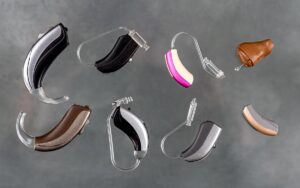Believe it or not, it’s been over 10 years since most people have had a hearing exam.
Harper is one of them. She goes to see her doctor for her yearly medical exam and gets her teeth cleaned every six months. She even changes her timing belt every 6000 miles. But her hearing exam typically gets neglected.
There are lots of reasons to get hearing tests, early detection of hearing loss being one of the more essential. Harper’s ears and hearing will remain as healthy as possible if she knows how often to get her hearing tested.
So you should get your hearing tested how often?
It’s disconcerting to think that Harper hasn’t had a hearing exam in 10 years. Or perhaps it isn’t. How old she is will greatly determine our reaction. Depending on age, recommendations will vary.
- For individuals over 50: The general suggestion is that anybody above the age of fifty should schedule yearly hearing tests As you get older, the noise damage you’ve incurred over a lifetime can begin to speed up, which means hearing loss is more likely to start impacting your life. In addition, there might be other health issues that can impact your hearing.
- If you are less than fifty years old: It’s generally recommended that you have a hearing test once every three to ten years or so. There’s no harm in getting your ears tested more frequently, of course! But once every ten years is the bare minimum. If you’ve been subjecting yourself to loud concert noise or work in a field with high decibel levels, you should err on the side of caution and get tested more often. It’s quick, easy, and painless so why wouldn’t you?
Signs you should get your hearing checked
Undoubtedly, there are other occasions, besides the yearly exam, that you might want to come in and see us. Maybe you start to experience some symptoms of hearing loss. And when they do you should schedule an appointment with us for a hearing assessment.
Here are a few clues that you need a hearing test:
- Sounds get muffled; it starts to sound as if you always have water in your ears.
- Rapid hearing loss in one ear.
- You’re having a difficult time hearing sounds in higher frequencies such as consonants.
- The volume on your stereo or television is getting louder and louder.
- Trouble hearing conversations in noisy environments.
- Asking people to slow down or repeat what they said during a conversation.
- Phone conversations are getting harder to hear.
When the previously mentioned warning signs start to add up, it’s a good sign that the perfect time to get a hearing exam is right now. You’ll know what’s going on with your ears as soon as you come in for an evaluation.
What are the advantages of hearing testing?
There are plenty of reasons why Harper may be late in getting her hearing test.
Maybe she hasn’t thought about it.
It’s possible that she just doesn’t want to deal with it. But there are tangible benefits to having your hearing tested per recommendations.
Even if you believe your hearing is completely healthy, a hearing exam will help set a baseline reading, which makes deviations in the future easier to identify. You’ll be in a better position to protect your hearing if you recognize any early hearing loss before it becomes noticeable.
The point of regular hearing tests is that somebody like Harper will be able to identify problems before her hearing is permanently diminished. Catching your hearing loss early by having your hearing checked when you should will help you keep your hearing healthier, longer. Think about the effects of hearing loss on your general health, it’s that important.
[blogcta]





